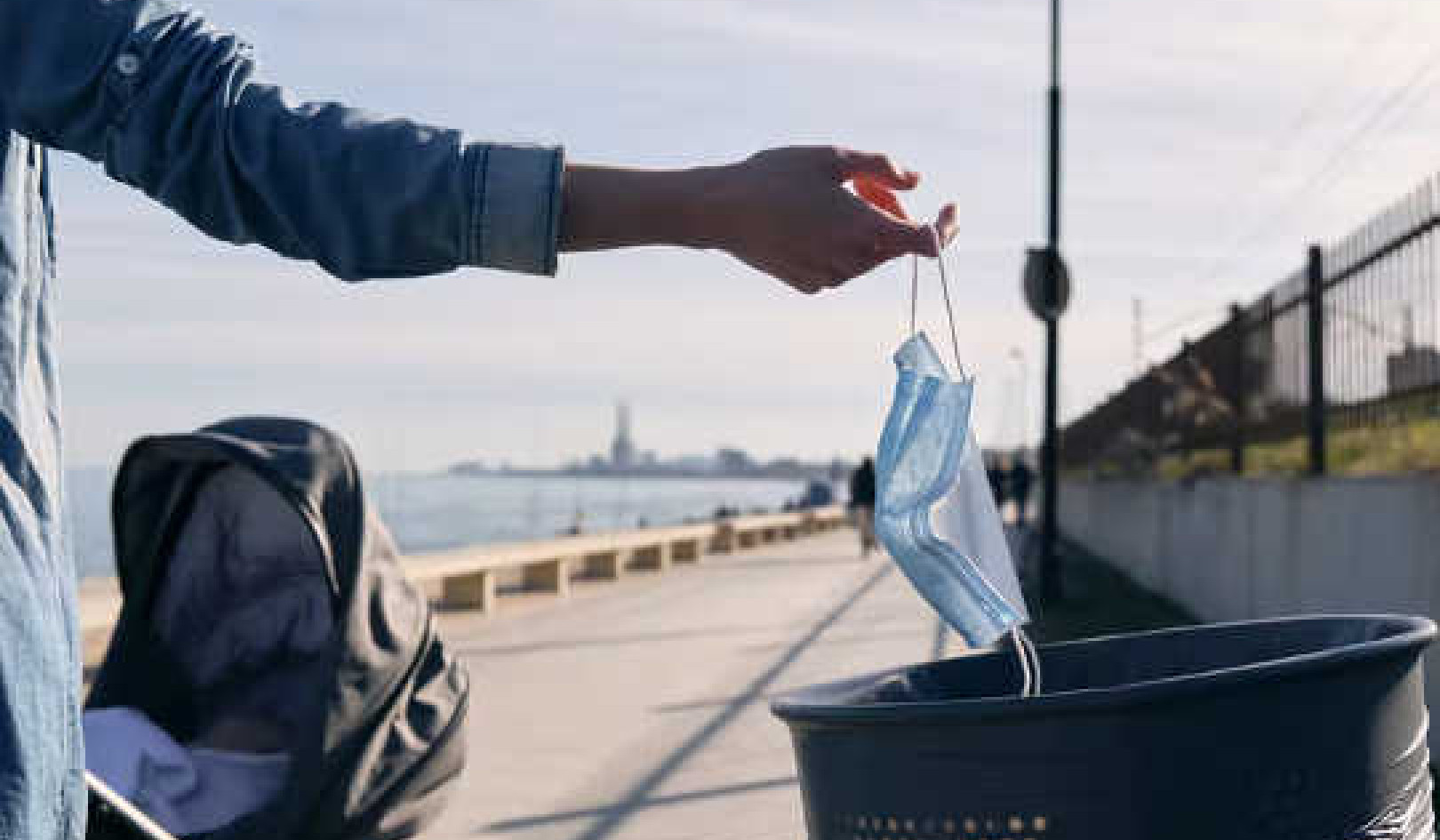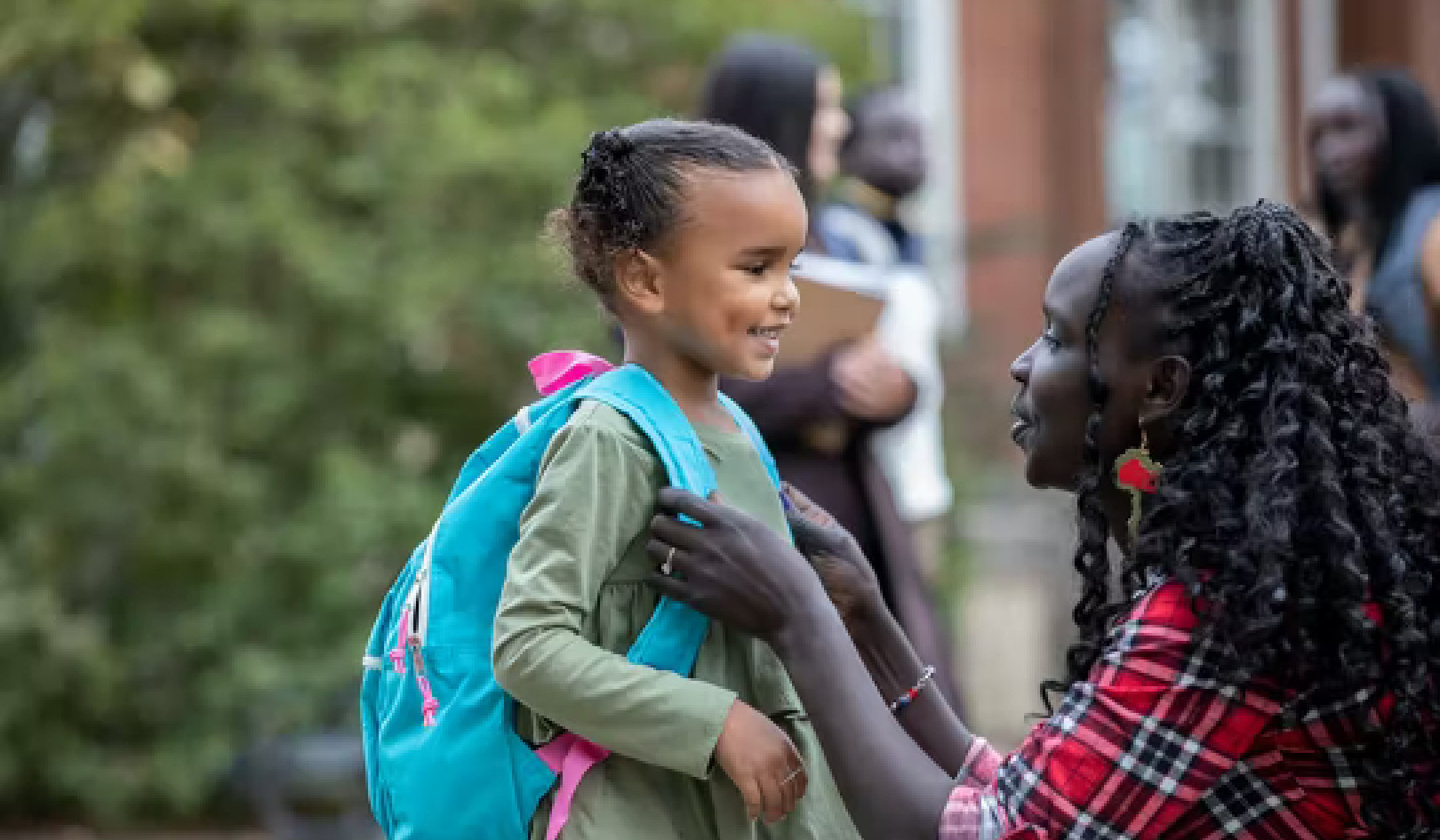
Image by Pete Linforth
One of the biggest challenges to parenting mindfully is the problem of too much. We all seem to struggle with stress from packed schedules and an overabundance of stuff. Yet like the proverbial frog in the pot of water that slowly heats to boiling, we often don’t recognize the problem until it is overwhelming.
Our commercial culture screams at us to go, go, go and buy, buy, buy as the way to happiness, but just as too many sweets will make us sick, too much stuff and a packed schedule leave us stressed, anxious, and unable to appreciate the abundance that we have.
Children, who are less acclimated to our busy lifestyles, feel the stress and react in ways that can be unpredictable. On their own, children naturally move at a much slower pace (as you have probably noticed), living fully in the moment and exploring their worlds deeply. Too much activity deprives children of the time to see, touch, smell, and listen to the world. It deprives them of the space to explore and get to know themselves.
I invite you to join me in pushing back against our “more is better culture” for the sake of your child (and your own sanity). Instead, let’s simplify and foster our children’s natural sense of safety, peacefulness, and wonder.
Simplify Schedules
A friend of mine told me the story of a family with adolescent children who were suffering from anxiety and going to therapy. They would arrive at their session squeezed in between gymnastics and soccer, eating fast food on the way over because there was no time for dinner. Every day was packed with activities and events that, taken individually, are wonderful, but added together created a schedule with zero downtime. It didn’t take much to see that the children’s anxiety was perpetuated, if not triggered, by their overly full days.
As children’s schedules have become increasingly full, their mental health has collectively taken a downward slide. Colleges and universities have begun to notice the impact on their students. A 2013 American College Health Association survey of almost 100,000 students found that more than half of students felt overwhelmed, very sad, and overwhelming anxiety (Lythcott-Haims 2015). While the intent is good, loading kids’ schedules with extracurricular “enrichment” activities actually has an adverse effect on them.
Children (heck, all of us) need free time to balance out their activities, get to know themselves, and feel peaceful. Imagine children who are absorbed deeply in pretend play. They are completely focused, and the world around them disappears. This is one of the most vital activities children can do— processing their world and their feelings, healing hurts, and expanding their creativity in their own time and at their own pace. Without it, children tend to be more nervous and less able to relax or sleep (Payne 2009).
We can’t instigate this state, we can’t take classes to “enrich” this kind of creativity. Instead, we can only leave time and space for unsupervised (but safe) free play and trust that downtime is essential to our children’s creativity and evolving identity. A rushed schedule packed full of activities does not allow for this; instead it promotes stress.
Allowing Time for Free Play
You may be worried that your child will be bored if you allow time for free, unstructured play. You’re right. However, it’s good for children to feel bored! In Simplicity Parenting, author and counselor-therapist Kim John Payne characterizes boredom as a “gift,” describing it as the precursor to creativity. In my own experience, I’ve found this to be true again and again. When my daughters were little, we gave them a lot of unstructured time for play, from which grew a bounty of skits, forts, drawings, puppets, and elaborate worlds for their stuffed animals.
What do we say when our children complain of being bored? I recommend Payne’s single, flatline response: “Something to do is right around the corner.” Don’t rescue them and don’t entertain them. They’ll find something to do.
When all of your friends are signing up their preschoolers for soccer and tumbling, you might worry that simplifying your schedule to allow time for free play will put your kids at a disadvantage. Don’t. Time for children’s play without guidance and purpose is no less than developmentally vital.
From more than six thousand “play histories” of patients, psychiatrist and researcher Stuart Brown has found a direct correlation between play behavior and happiness, from childhood into adulthood. Children deprived of play have difficulty regulating appropriate emotions and exhibit a lack of resilience and curiosity. These children are often rigid and aggressive (Brown 2009).
Dr. Brown studied murderers in Texas prisons and found that none of the men had ever experienced normal rough-and-tumble play, not even one. These violent, antisocial men missed the learning that came from play. Unstructured play teaches children to moderate their behavior and helps children develop self-control—essential parts of being human.
Taking Back Our Leisure Time
Our diminishing leisure time is detrimental for children. We must fight back and take back our time. Do you have your child in multiple groups or activities? Do you hurry from one thing to the next? Take steps to simplify your schedule and protect your child’s time. You don’t have to say yes to every birthday party or event in your circle of friends.
There’s so much happening in our lives today that our job is often to curate events instead of seeking them out. Ideally, give your child unstructured free time every day to play and daydream. When you have a busy day, balance that with a calm day. When you simplify your child’s schedule, you’ll be giving her the lifelong gift of a true childhood.
Simplify the Environment
Our lives are full—not only of events but of stuff. Right from the time a woman is expecting, our culture bombards her with a never-ending list of “required” purchases. Later, children’s rooms become overflowing with toys, drawers jam-packed, walls covered in posters, closets packed tight, and floors hidden beneath a multicolored, ever-expanding layer of stuff.
In Simplicity Parenting, Kim John Payne suggests that this profusion of products and playthings is not just a symptom of excess but a cause of stress, fragmentation, and overload in children. He argues that our consumer culture creates a sense of entitlement in children. It also creates a false reliance on purchases rather than on people to satisfy and sustain us emotionally (Payne 2009).
Imagine a huge pile of toys. Our children find it overwhelming because there are too many choices. They don’t know what’s in the middle of the pile, and they don’t value any of it very highly. When faced with an excess of choices, children learn to undervalue their playthings and choose to hold out for something more. Moreover, cleanup becomes an overwhelming trial. While we want to be generous, provide well, and stimulate their imaginations, the result for our children too often is a sense of overload from too much stuff.
When my daughter was two years old, I realized that the growing piles of stuff were starting to overwhelm our home. I was a little worried about throwing things away, but I took steps to simplify her environment nonetheless. While she was at preschool, I radically decluttered her room, taking the majority of toys away and leaving a spacious, appealing space. When she returned home, I was nervous about her reaction. Would she freak out and have a tantrum, demanding her stuff back? To my surprise, she was delighted with her room. She thanked me for making it so beautiful and immediately began to play.
Children feel a sense of ease and focus in a room with less. It’s soothing to the senses and can even help to calm behavioral issues. Simplifying means less clutter and more breathing room. Children appreciate their things more.
Fewer belongings means reducing the burden of our responsibilities. We spend less time on care, maintenance, searching for items, and storage. Less stuff actually means more ease. It means more time to devote to what is really important.
How To Simplify Stuff?
I suggest starting with toys. Pick a time when your child is not at home. Then gather up and radically reduce the number of toys. Some you can discard completely, some you may want to cycle in and out of your kid’s space. Be careful though! Try putting things in a basement or storage area for a few weeks, that way you can retrieve a particularly beloved toy. Kim Payne suggests a list of toys for the discard pile, including:
Broken toys
Developmentally inappropriate toys—too old or too young for your child
Character toys from movies
Toys that “do too much” and break too easily
Very high-stimulation toys
Annoying or offensive toys
Toys you were pressured to buy
Toy multiples
What’s left? Keep toys that encourage pretend play and creativity, such as real tools, dolls and puppets, musical instruments, and so forth. I remember thinking that those crunchy mamas were crazy giving their children scarves to play with, but it turns out that they are a wonderful toy! Scarves can become all manner of dress-up items, structural supports, theater curtains, and more.
Keep things that your child can project any number of different imaginative ideas upon. Have out only what your child can put away by herself in five minutes, arranged in a pleasing fashion. Also rotate items in and out, which makes things feel like new again.
Once you simplify the toys, cast an eye to the other areas of your child’s life and home. You might be able to reduce the number of clothes in your child’s drawers to make getting ready easier in the morning. You might reduce the excess in the rest of your home for more ease and freedom. Remember, we are always modeling for our children. Less stuff means less to take care of and more time to focus on what’s important.
Simplify Screens
Our children are growing up in a vastly different world than we did. Now we walk around with a portal to every kind of information and entertainment burning a hole in our pockets. Screens are as mesmerizing and irresistible to children as they are to us, so if we want them to grow up grounded in reality, it behooves us to set limits on screen time.
I invite you to consider the issue of kids and screen time from the stance of the middle path. Neither of the extremes—unlimited access or a complete ban—teach children how to live mindfully in a world where screens are ubiquitous. Digital technology offers great opportunities for creativity, problem solving, and learning. My daughter was thrilled when she learned how to code a game, and I was pleased to see it.
Yet, the digital world also has content that’s oversexualized and violent, and the time spent on screens takes time away from interacting in the real world. The American College of Pediatricians (2016) warns that too much screen time can lead to obesity, sleep problems, depression, and anxiety. Clearly, digital technology has a big impact on our lives, so the question is how to set healthy limits on it.
Look at your own relationship to technology. Do you like to watch TV or play games online? Are you constantly checking your phone? Do you talk on the phone when you’re driving? Do you put limits around your screen time? Kids see how we live and learn from that.
When you ask yourself, What is healthy for my child? look to see what shifts you can make in your own technology use first. Think of yourself as your child’s media model, teaching her how to live a balanced life with digital technology.
Screen time tips:
- Use password protection on devices so that your child must ask you to unlock them.
- Set parental controls on devices to filter and block violence and pornography.
- Establish time limits for screen time.
- Keep all screens and technology out in “public” family spaces. Charge your phones in public/family spaces.
- Don’t give your child screen time thirty minutes to an hour before bedtime. The bright light can interrupt your child’s sleep.
- Resist handing your child your phone while waiting in line or driving in the car if you can.
- Have a weekly digital detox day (or part of the day). We have “screen-free Sunday” in our home.
- Make sure responsibilities such as chores and homework are done before screen time.
- No one has phones at the dinner table.
- Insist on some fresh air and exercise before screen time.
- Delay giving your child a smartphone. Consider doing the “Wait Until Eighth” pledge to empower parents to resist the pressure to get a smartphone earlier.
Instead of turning on a screen, your child can play with toys, draw, read books, or help out with chores around the house. And remember that it’s okay (even good) for your child to be bored sometimes. However, you must walk the talk. I used to keep my phone in my room to use as an alarm clock until my daughter called me out on it. We weren’t supposed to have technology in our rooms. So I moved it downstairs and bought myself an alarm clock.
Model the kind of media use you want for your child. With healthy limits we show our kids how to maintain a balanced relationship with our digital technology.
The environment in your home has a big impact on your ability to stay grounded and communicate skillfully with your child. Rather than being overwhelmed by clutter and busyness, you can choose to move toward a slower pace and more simplicity in your life. When you reduce stress and distraction, it becomes easier to practice meditation and bring mindfulness and compassion into the rest of your life.
©2019 by Hunter Clarke-Fields. All Rights Reserved.
Excerpted from "Raising Good Humans", Chapter 8,
New Harbinger Publications, Inc.
Article Source
Raising Good Humans: A Mindful Guide to Breaking the Cycle of Reactive Parenting and Raising Kind, Confident Kids
by Hunter Clarke-Fields MSAE
 With this book, you’ll find powerful mindfulness skills for calming your own stress response when difficult emotions arise. You’ll also discover strategies for cultivating respectful communication, effective conflict resolution, and reflective listening. In the process, you’ll learn to examine your own unhelpful patterns and ingrained reactions that reflect the generational habits shaped by your parents, so you can break the cycle and respond to your children in more skillful ways.
With this book, you’ll find powerful mindfulness skills for calming your own stress response when difficult emotions arise. You’ll also discover strategies for cultivating respectful communication, effective conflict resolution, and reflective listening. In the process, you’ll learn to examine your own unhelpful patterns and ingrained reactions that reflect the generational habits shaped by your parents, so you can break the cycle and respond to your children in more skillful ways.
For more info, or to order this book, click here. (Also available as a Kindle edition and as an Audiobook.)
About the Author
 Hunter Clarke-Fields is a mindfulness mentor, host of the Mindful Mama podcast, creator of the Mindful Parenting online course, and author of the new book, Raising Good Humans (New Harbinger Publications). She helps parents bring more calm into their daily lives and cooperation in their families. Hunter has over 20 years of experience in meditation and yoga practices and has taught mindfulness to thousands worldwide. Learn more at MindfulMamaMentor.com.
Hunter Clarke-Fields is a mindfulness mentor, host of the Mindful Mama podcast, creator of the Mindful Parenting online course, and author of the new book, Raising Good Humans (New Harbinger Publications). She helps parents bring more calm into their daily lives and cooperation in their families. Hunter has over 20 years of experience in meditation and yoga practices and has taught mindfulness to thousands worldwide. Learn more at MindfulMamaMentor.com.

























